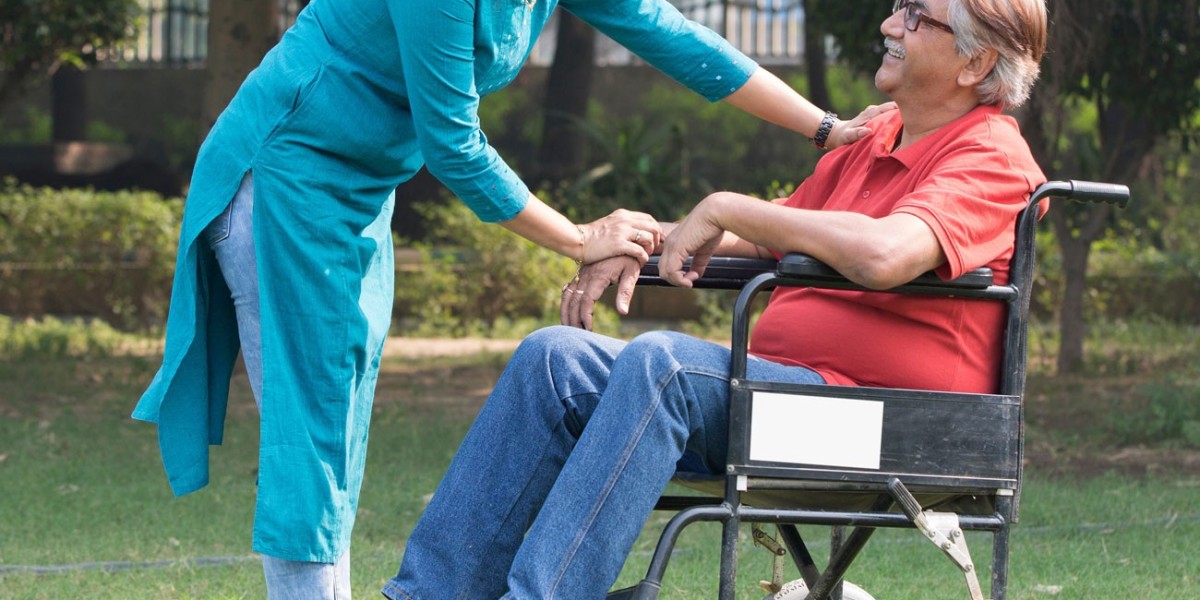Dementia is an umbrella term for a range of neurological conditions that affect memory, thinking, behavior, and the ability to perform everyday activities. With over 100 different types of dementia, caregivers may find it overwhelming to understand the condition affecting their loved one. Gaining an understanding of the different types of dementia can help caregivers provide more informed, compassionate care and ensure that the individual’s needs are met appropriately.
1. Alzheimer’s Disease: The Most Common Type of Dementia
Alzheimer’s disease accounts for approximately 60–80% of all dementia cases. It is a progressive condition that primarily affects memory, thinking, and behavior. Alzheimer’s is characterized by the buildup of plaques and tangles in the brain, which disrupt the communication between neurons and lead to the gradual decline of cognitive functions.
- Symptoms: Memory loss, confusion about time and place, difficulty with familiar tasks, changes in mood or personality, and challenges in communication.
- Caregiving Tips:
- Establish a consistent routine to help your loved one feel more secure.
- Use memory aids, such as calendars, reminders, and labels to help with memory loss.
- Be patient and understanding, as individuals with Alzheimer’s may become easily frustrated or confused.
2. Vascular Dementia: Dementia Caused by Poor Blood Flow to the Brain
Vascular dementia is the second most common form of dementia. It occurs when there is damage to the blood vessels in the brain, leading to a reduction in blood flow and oxygen to brain cells. The condition is often the result of stroke, mini-strokes, or other cardiovascular issues.
- Symptoms: Sudden memory loss, confusion, difficulty concentrating, trouble with problem-solving or planning, difficulty walking or with motor skills, and mood changes.
- Caregiving Tips:
- Encourage regular physical activity to help improve circulation and overall health.
- Manage the individual’s blood pressure, cholesterol, and other cardiovascular health factors to slow the progression of vascular dementia.
- Create a calm, safe environment as individuals with vascular dementia may experience physical difficulties such as walking or balance problems.
3. Lewy Body Dementia: A Disorder Caused by Abnormal Protein Deposits in the Brain
Lewy body dementia (LBD) is characterized by the presence of abnormal protein deposits known as Lewy bodies in the brain. These deposits disrupt the brain's normal functions and lead to cognitive decline and motor symptoms similar to Parkinson’s disease.
- Symptoms: Cognitive decline (similar to Alzheimer’s), visual hallucinations, fluctuating alertness, difficulty with motor control (such as stiffness, tremors, or balance issues), and sleep disturbances.
- Caregiving Tips:
- Provide a calm environment to reduce the likelihood of hallucinations or confusion.
- Focus on physical activity and exercise to support mobility and motor control.
- Be prepared for fluctuations in alertness, which may require additional support or safety precautions.
4. Frontotemporal Dementia: A Group of Disorders Affecting the Front and Temporal Lobes of the Brain
Frontotemporal dementia (FTD) refers to a group of disorders caused by the progressive degeneration of the frontal and temporal lobes of the brain. These areas are responsible for behavior, emotions, and decision-making. FTD is often diagnosed in people under the age of 65.
- Symptoms: Changes in personality and behavior (e.g., social withdrawal, lack of empathy, impulsivity), difficulty with speech and language, and motor symptoms such as weakness or difficulty walking.
- Caregiving Tips:
- Set clear boundaries and provide structure in daily routines, as individuals with FTD may have difficulty understanding social norms or appropriate behavior.
- Engage your loved one in simple communication exercises to help them express themselves.
- Monitor their safety closely, as impulsive behaviors or poor decision-making may increase the risk of accidents.
5. Parkinson’s Disease Dementia: Dementia Associated with Parkinson’s Disease
Parkinson’s disease is a neurodegenerative disorder that primarily affects movement, but in some individuals, it progresses to include cognitive impairment and dementia. Parkinson’s disease dementia typically develops later in the disease, often years after motor symptoms appear.
- Symptoms: Cognitive decline, difficulty with attention and memory, visual hallucinations, tremors, rigidity, and difficulty with movement.
- Caregiving Tips:
- Assist with physical therapy or movement exercises to help with rigidity and improve mobility.
- Monitor for changes in mood and mental state, and be prepared to offer reassurance if visual hallucinations occur.
- Coordinate care with healthcare providers to manage both the cognitive and physical aspects of Parkinson’s disease.
6. Mixed Dementia: A Combination of Two or More Types of Dementia
In some cases, individuals may experience mixed dementia, which is the presence of more than one type of dementia. For example, a person may have both Alzheimer’s disease and vascular dementia. This combination of conditions can complicate diagnosis and caregiving approaches.
- Symptoms: A combination of the symptoms of the different types of dementia involved, such as memory loss, confusion, and movement problems.
- Caregiving Tips:
- Adapt your caregiving strategies to address the specific needs of your loved one, depending on the types of dementia they have.
- Regularly consult with healthcare professionals to ensure that all aspects of the individual’s condition are managed appropriately.
7. Huntington’s Disease: A Genetic Disorder Leading to Cognitive Decline and Movement Problems
Huntington’s disease is a rare genetic disorder that causes the progressive breakdown of nerve cells in the brain. It typically leads to a combination of cognitive, motor, and psychiatric symptoms.
- Symptoms: Cognitive decline, difficulty with movement (e.g., involuntary movements or jerking), personality changes, and mood disturbances.
- Caregiving Tips:
- Provide regular physical therapy to help with movement difficulties and prevent falls.
- Offer emotional support, as Huntington’s disease often causes depression and mood swings.
- Work with a medical team to manage medications for both cognitive symptoms and movement disorders.
8. Creutzfeldt-Jakob Disease: A Rapidly Progressive and Rare Form of Dementia
Creutzfeldt-Jakob disease (CJD) is a rare, rapidly progressive neurological disorder caused by prions (abnormal proteins that cause brain damage). CJD leads to severe cognitive decline, memory loss, and other neurological symptoms.
- Symptoms: Rapid cognitive decline, memory loss, muscle stiffness, difficulty coordinating movements, and visual disturbances.
- Caregiving Tips:
- As CJD is a rapidly progressive condition, caregivers should prepare for a fast-paced decline in abilities.
- Provide palliative care, focusing on comfort and managing symptoms.
9. Caring for Someone with Dementia: General Tips for All Types
Regardless of the specific type of dementia, there are general caregiving tips that can help manage the challenges of dementia care:
- Create a structured environment: Routine and structure help reduce confusion and anxiety.
- Encourage social engagement: Engage your loved one in activities they enjoy, such as listening to music or looking at photos, to improve their mood and mental stimulation.
- Stay patient and compassionate: Dementia can cause emotional and behavioral changes that can be frustrating. Practice patience and empathy as you navigate caregiving challenges.
- Seek support: Reach out to support groups, healthcare professionals, or respite care to help manage the stress of caregiving.
Conclusion
Understanding the different types of dementia can help you better care for your loved one and adapt your caregiving approach to their specific needs. While each type of dementia presents unique challenges, the goal of dementia care is always to provide compassionate, supportive, and person-centered care. By staying informed and seeking support when needed, you can enhance the quality of life for both yourself and the person you are caring for.







